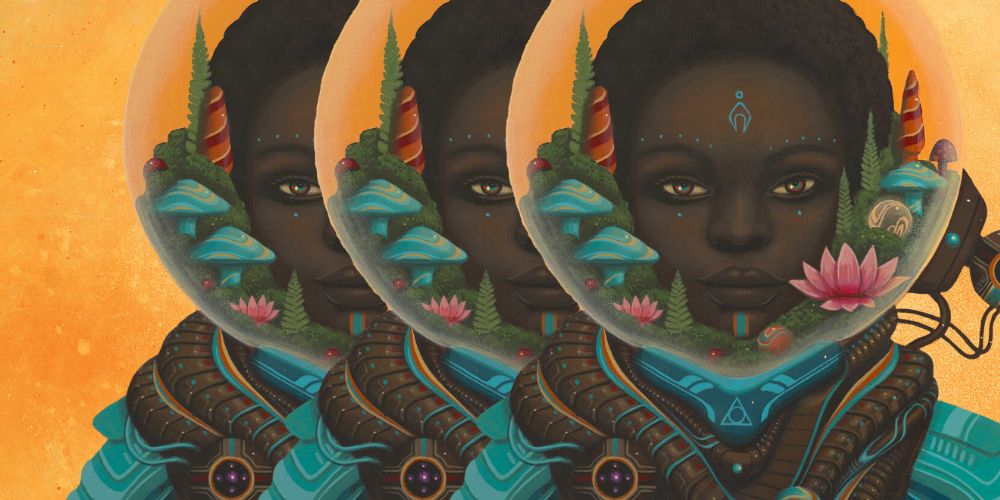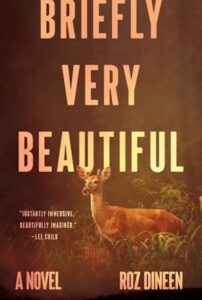
On the Simple Prophecy of Octavia Butler’s Parable of the Sower
Roz Dineen on the Book Everyone Should Read Now
Parable of the Sower was first published in October 1993. It tells the story of 15-year-old Lauren Olamina, a young Black woman living through a time of severe societal collapse. She creates (through observation and deduction) a new religion, Earthseed, which she expounds between her diary entries in simple verses that are both axiomatic and richly open-ended: “The Self must create / Its own reason for being. / To shape God, / Shape Self.”
The book has been heralded over the years as an exemplar of literary sci-fi, and its author, Octavia E. Butler, has many times over been crowned the Queen of Afro-futurism. But there is also something long and slow-burn about this masterpiece’s trajectory since publication. It took twenty-seven years for Parable to hit the New York Times bestseller list, which it did in September 2020. And, in more ways than one, the story is only just beginning: the book opens with Lauren’s diary entry dated Saturday, the 20th of July 2024. The relevance and impact of Parable of the Sower seem to have ever deepening after-lives.
And, in more ways than one, the story is only just beginning: the book opens with Lauren’s diary entry dated Saturday, the 20th of July 2024.
I have had several encounters recently with people who have been inspired by the date to read Parable of the Sower for the first time, and they have each been unusually shaken by it. Parable is certainly prescient. The issues that seem to have caused the breakdown of society in the world of the book—climate warming, scarcer natural resources, violence, extreme poverty, regressive labor laws—feel only more likely to crumble us every day. New readers are often caught breathless when they read about a presidential candidate (a zealot) running on the pledge to “make America great again” in Butler’s sequel to Parable of the Sower, Parable of the Talents which was published in 1995.
Along with a popular (and prophetic) political slogan, other inventions in Parable include a drug, Pyro, which induces its uses into orgasmic trances when they set and watch fires. There is also an earring that works as a radio (like an AirPod). And yet, in total, Butler does not actually invent that much at all. Instead, this is the sort of science fiction drawn out from logical conclusions.
*
When the pandemic hit, I was writing an apocalyptic book that was set in a near-future among societal collapse. For research I had stuck to the dry stuff, data and facts: climate journalism, studies, policies. I’d avoided reading speculative fiction and watching apocalyptic TV shows because I felt too easily influenced. I was worried I’d accidentally steal someone else’s better ideas, like a magpie, and lose any trace of originality.
Which is all to say that I did not read Parable of the Sower (nor read, or watch Station Eleven, nor The Last of Us etc. etc.) until after I’d handed in my manuscript. When I did come to read Parable I was truly surprised by the similarities of content in Butler’ book and the one I’d just turned-in to my publisher.
Like Butler’s, my characters must go north for safety. They put themselves at risk for water. Trust is built between disparate adults on the road when they look after each other’s children. Caught in wildfire, they instinctively throw wet blankets over the young to protect them from the smoke. The police are not to be trusted. Progress is running backwards—any gains against racism, for liberty, and the right to life—are being undone.
At the center of Butler’s story, and my own, is a young woman, practical, strong, with a very uncomplicated relationship to sex, who comes to realize a vision that could carry people out of their nightmare. Civilization has not been brought down by authoritarian mind-control (a la 1984) but, more realistically, through the stupidity, neglect, and self-serving instincts of those in power.
Perhaps these parallels between the books can be related back to Carl Jung’s idea of the collective unconscious. Jung proposed that, at birth, we contain within our psyches the sum total of all myth, symbol, and story. Maybe anyone who spent enough time thinking about the end of civilization would independently make different versions of the same story, because we all contain deep within us the identical symbolic blueprint of rise and decline. We know how all this is going to go down, intuitively.
Maybe anyone who spent enough time thinking about the end of civilization would independently make different versions of the same story, because we all contain deep within us the identical symbolic blueprint of rise and decline.
Yet, I find there is something too neat and also pseudoscientific about Jung’s collective unconscious. It seems more likely that any synchronies between what Butler did and what apocalyptic writers before and after her have done, as I tried to do, is to simply and calmly follow existing conditions to their logical conclusions, without much creative interference. When you do this systematically, the outcomes are obvious and the world-building relatively seamless.
For example: if fuel were to become prohibitively expensive, there would be fewer vehicles on the streets. So, if climate change forced migration, those displaced people would try to relocate on foot along the highways. We have evidence that extreme poverty often leads to ultra-right-wing governments; if these governments were to loosen labor laws, then it is not a wild leap of imagination to propose that debt-slavery would reappear, offered as a false sanctuary. The stars are more visible in the sky when electricity is off and there is no light pollution. And so on. All of these are realities in the Parable of the Sower, but they are not wildly creative inventions. This may be sci-fi but it is based on very real-world logic.
However, there is one particular conclusion that Butler’s protagonist draws which, even though it follows apparently faultless logic, blows my mind, and sets Parable firmly apart.
According to Lauren’s religion Earthseed, the human fate is to eventually leave this ravaged earth and populate other planets.
She writes, in Parable of the Talents:
The Destiny of Earthseed
Is to take root among the stars.
It is to live and thrive
On new earths.
It is to become new beings
And to consider new questions.
It is to leap into the heavens
Again and again.
It is to explore the vastness
Of heaven.
It is to explore the vastness
Of ourselves.
In his 2018 book On the Future: Prospects for Humanity, the astrophysicist and cosmologist Martin Rees discussed mankind’s destiny in space. He predicted that as time goes on the practical arguments for manned space flight will become less convincing—too dangerous, too expensive, and other planets may not be hospitable enough to provide a truly good home for organic intelligence. Eventually, he suggests, humankind’s destiny in space could be carried out by robots. And it is in deep space, away from the necessary regulations put upon AI by humans on earth that “non-biological brains may develop powers that humans can’t even imagine.”
These robots could contain, thanks to AI, human intelligence; all that has ever been known by man. Once AI has passed the moment of singularity, when it begins to exceed us exponentially, the seed of human intelligence could grow into a vast super-intelligence, surpass humans “as much as we, intellectually, surpass slime mould.” Rees posits a scientific version of Jung’s collective unconscious, housed in an inorganic brain, in space, ever expanding, experiencing itself.
Rees writes: “Even though we are not the terminal branch of an evolutionary tree, we humans could claim truly cosmic significance for jump-starting the transition to electronic and potentially immortal entities, spreading their influence far beyond the earth and far transcending our limitations.” This seems to me akin to the logical conclusion that Butler reaches for: That our human consciousness could “leap into the heavens / Again and again” to “explore the vastness / Of ourselves.” It could spread without us, through space, through galactic time, immortally, a bit like God. This is both a deeply romantic and devastating idea for the human fate. And yet, in certain lights, it seems only logical. Octavia E. Butler, with brilliant, pure, creative intellect, identified the seed of this possible future over thirty years ago, called it Earthseed, put it in the mind of a 15-year-old character and had her write a diary, beginning on Saturday, July 20th, 2024.
______________________
Roz Dineen’s Briefly Very Beautiful is available now from Overlook Press.
Roz Dineen
Roz Dineen was an editor at the Times Literary Supplement for 12 years, serving as fiction editor and later features editor. She has also written extensively for the Times Literary Supplement, where her essays and reviews have covered a range of topics from addiction to motherhood, from Jonathan Franzen to J. G. Ballard and Sally Rooney. She studied English literature at Trinity College, Dublin, received a master’s degree in international studies and diplomacy from SOAS, London, and was a Robert L. Bartley Fellow at the Wall Street Journal. Briefly Very Beautiful is her debut novel.




















